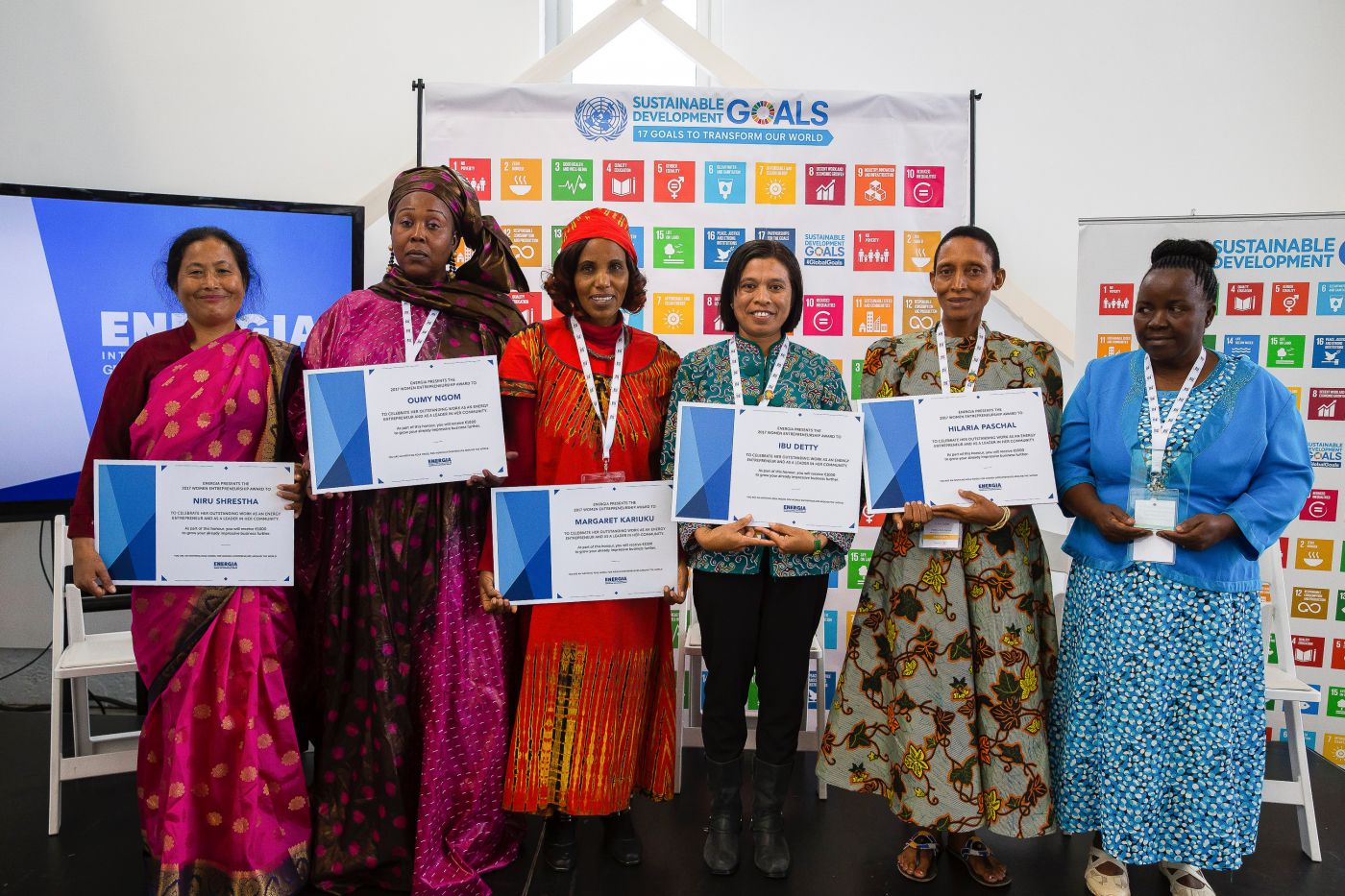ENERGIA brought five exceptional women from Africa and Asia to the Sustainable Energy for All Forum. These five women are successful entrepreneurs, leaders in their communities and role models for other entrepreneurs. They have all been actively engaged in our Womens’ Economic Empowerment Programme for at least one year and have been continuously running a profitable business for at least three quarters of a year.
In February, we recognized their outstanding work with ENERGIA Women Entrepreneurship Awards. On 5 April, we presented the awards at a ceremony taking place at the SEforALL Forum.
Here are some details about these inspiring women.
Ibu Detty: A school teacher and a clean energy entrepreneur from Indonesia who knows how to seal the deal
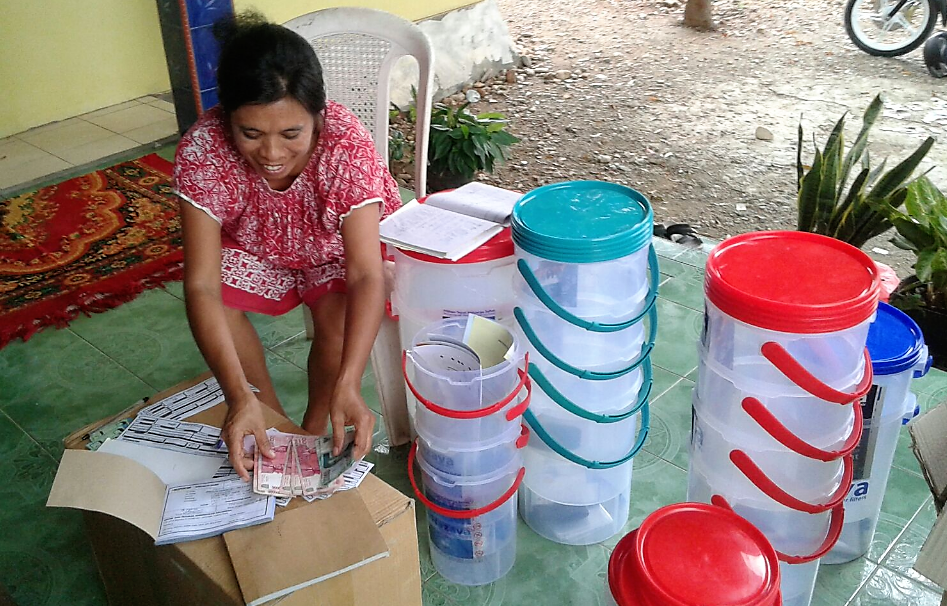
“Ibu Detty is the perfect example of what we mean when we say women’s economic empowerment through energy access,” wrote Kopernik, our partner in Indonesia when nominating this role model for ENERGIA Women Entrepreneurship Award.
Maria Bernadette Amsikam, commonly known as Ibu Detty, has been involved in Kopernik’s Wonder Woman programme. This has helped her grow into a strong, confident and successful clean energy technology business person within her community. She actively seeks new sales opportunities and speaks with conviction about the importance of access to clean energy.
“The most delightful thing about distributing clean energy technology is seeing the benefits that people get from using the technologies. Families can save time, costs, and they become healthier, too,” said Ibu Detty.
She regularly talks about this subject to the parents of her students and other teachers at the two schools where she works as a teacher. She has been raising awareness of the benefits of the technologies she sells and their positive impact on the environment. Among other things, she points out that solar lights give children a better chance of excelling in school, since they are able to study after sunset. In addition, the water filters she sells decrease the likelihood that children miss school because of water-borne bacteria.
Alongside raising four children with her husband and working as a teacher, Ibu Detty distributed more than 70 pieces of technology equipment to community members in Kefamenanu over the past year. She wants to expand her business and distribute clean energy technologies to the most remote parts of her area.
She says that she finds it quite easy to convince people to purchase the clean energy technologies because people who buy them spread the word about their benefits. However, noted Kopernik, “her remarkable sales effort can be better attributed to her gentle, personable and trustworthy nature that seals the deal at the end of the day”.
Hilaria Paschal: Selling solar lights and improved cookstoves while expanding women’s opportunities in rural Tanzania
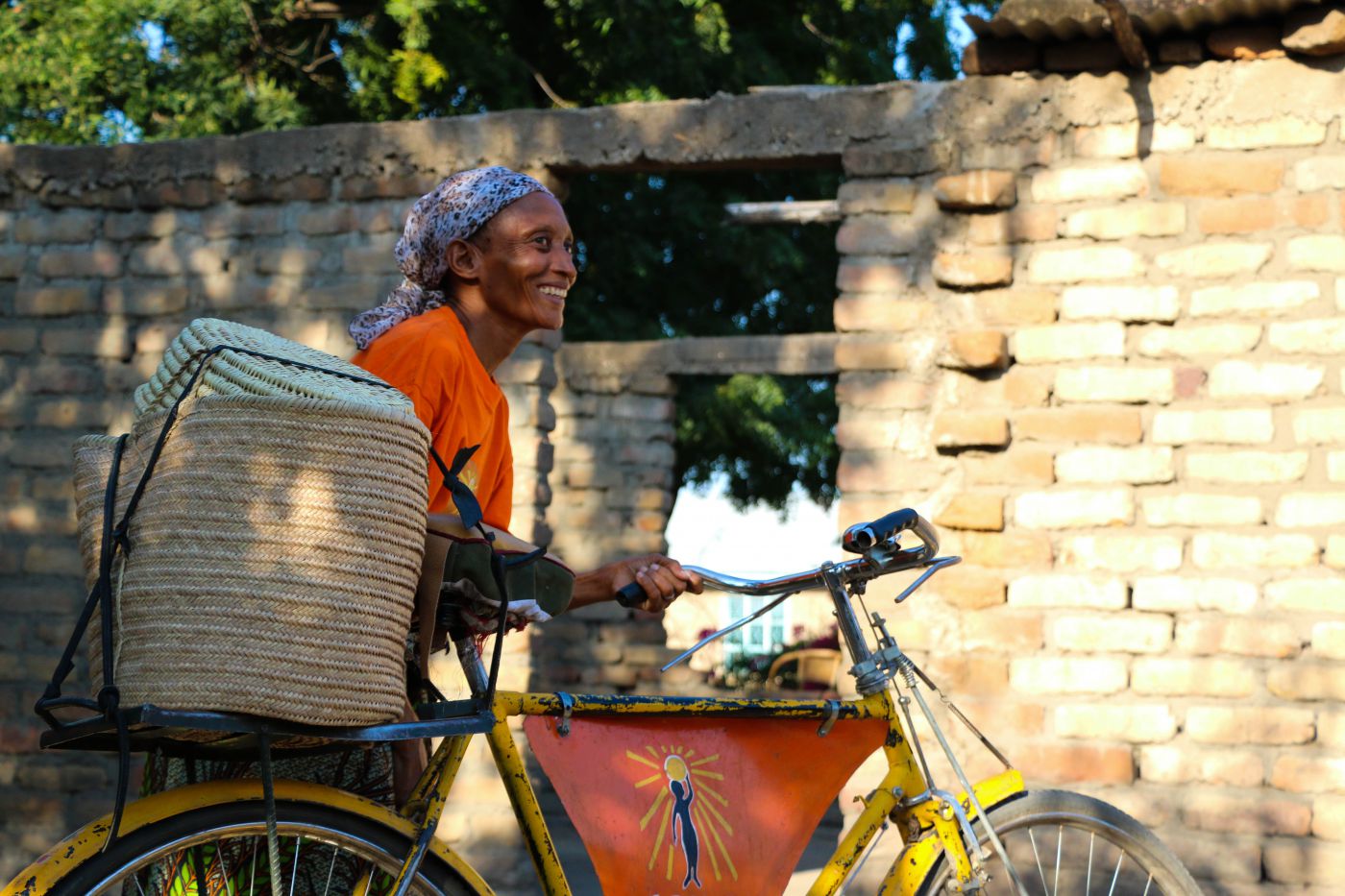
When Solar Sister launched its women’s economic empowerment programme in Tanzania back in 2013, Hilaria Pashcal was the very first woman to sign up. As an entrepreneur, this mother of five children has been bringing affordable energy technology to her community. Her cookstoves and solar lights have reached over 1,300 people so far. Income from energy technology sales has been complementing her basket-weaving business and helping Hilaria cover her children’s school fees. Moreover, her own solar lamp has enabled her to increase her profits thanks to being able to weave baskets after sunset.
In their nomination, Solar Sister wrote that Hilaria has built a strong network of customers and supporters in her community and does not just sell products to her friends and family. She is proactive and goes door to door in her community, visits churches and community groups, and finds new markets. Moreover, she never gives up and is not afraid to try new things in her businesses. For example, she has traveled to Dar es Salaam to showcase her products at the International Trade Fair & Exhibition. In 2016, she kept her Solar Sister business going in spite of caring for her sick child and dipping into her savings for the medical costs.
In addition to her businesses, Hilaria helps mentor other women at Solar Sister as a group leader in her area, thus bringing economic opportunity to more women in rural Tanzania. This group of women is called the Mwada Sisterhood Group and they support each other in all aspects of life. Hilaria said: “I normally encourage my friends and group members to work hard and not to be scared to dare to do something which is profitable to them.”
In the words of those who nominated her for the ENERGIA Women Entrepreneurship Award: “Hilaria truly exemplifies Solar Sister’s values of grit and sisterhood!”
You can also get to know Hilaria through Solar Sister’s video portrait.
Margaret Kariuki: Recording tremendous growth and creating employment opportunities with briquettes business in Kenya
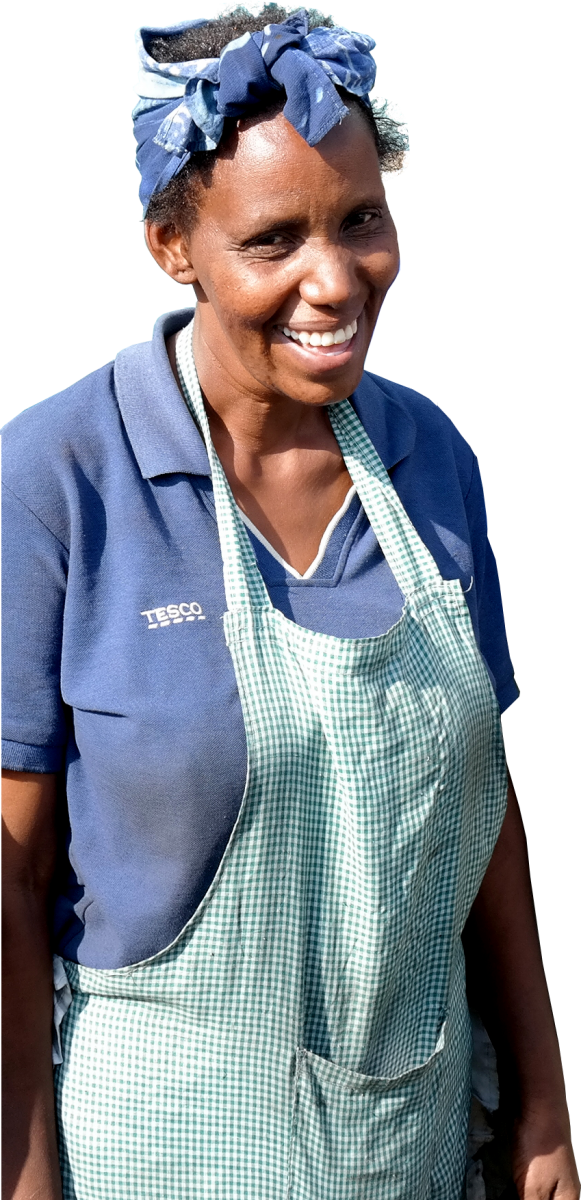
For the ENERGIA Women Entrepreneurship Award in Kenya, Practical Action Eastern Africa nominated Margaret Kariuki who started her business, Zion Investment, in January 2015.
Margaret has four school-aged children and holds a secretarial certificate. When looking for a new opportunity to support herself and her family, she found it in recycling the bits of charcoals that stayed behind after bigger pieces were sold. This residue frequently ended up on country roads. Instead of letting it go to waste, Margaret learned how to make briquettes that people can use in their cookstoves.
She has actively participated in the Women in Energy Enterprise in Kenya training programmes on technology, business management, agency empowerment and self-leadership, and she continues to receive customised mentorship support from the project mentors.
She launched her production and sales of fuel briquettes on her own, and she was selling between 50 and 150 kg of briquettes per month in total to four regular domestic customers. However, reported Practical Action, “through her commitment in applying the skills acquired from the training and with mentorship support, her business has recorded tremendous growth”. Margaret is now selling from two to five tonnes of fuel briquettes per month. Her customers include 15 private households, two hotels and three food vendors, but Margaret has been receiving numerous inquires and is likely to further expand her customer base.
To meet the demand, Margaret now has two permanent employees and frequently engages casual labourers as well. Going forward, she plans to use the knowledge acquired through training and mentorship to train more women who have shown interest in learning how to produce quality briquettes. As Margaret said: “Many young people are jobless, and many women are frustrated, they have no way to get an income. So I can use the prize money to give them a chance, to teach them and to give them the skills so that they can benefit as I am benefitting. At the same time I will improve my life standard.”
You can learn more about Margaret in a recent blog post by Practical Action.
Niru Shrestha: Improved cookstoves entrepreneur from Nepal with a wide network of sales agents and big plans
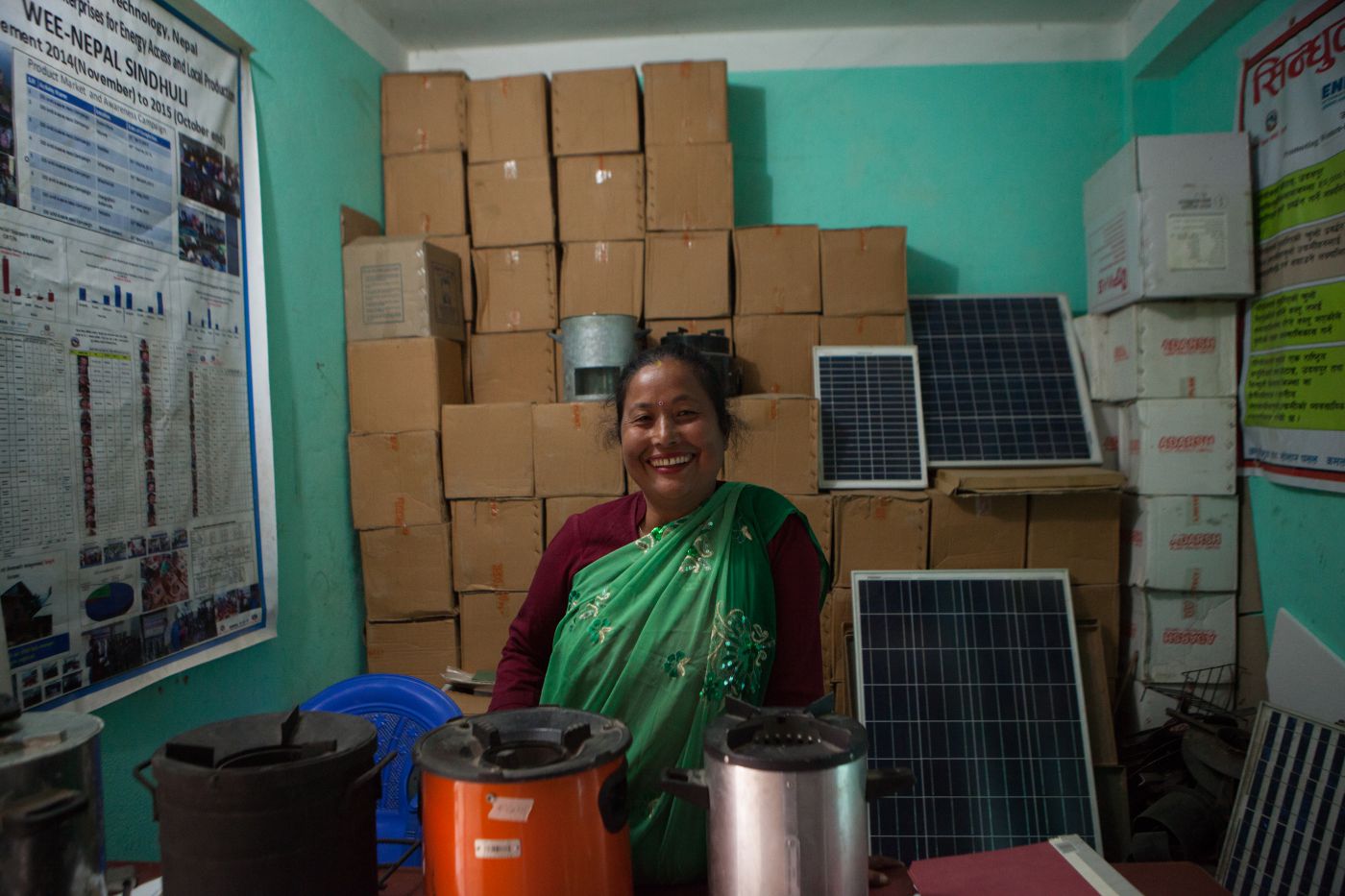
Center for Rural Technology Nepal nominated Niru Shrestha for ENERGIA Women Entrepreneurship Award based on her success in selling improved cookstoves.
Niru has been in cookstoves business for more than 13 years, but she was initially constructing built-on-site mud chimney stoves. A turning point was her participation in the training for entrepreneurs within the Women’s Economic Empowerment Programme in 2015. Shortly thereafter, Niru set up shop and started selling biomass cookstoves and components for fixed mud stoves. It soon became evident that she was filling a crucial gap in her district’s cookstoves supply, and her business has continued to grow.
Niru has developed a solid business plan, established links with city-based suppliers and engaged more than 100 women – who have also been trained within the Women’s Economic Empowerment Programme – as local sales agents. During the fiscal year of 2015/16 alone, her enterprise sold over 6,100 cookstoves – a more than twelve-fold increase compared to total cookstoves sales in her district before Niru launched her business.
Niru has proved to be able to overcome various obstacles. For example, after she was refused a sizeable loan from a development bank in the past fiscal year, which she wanted to use to expand her business, Niru managed to raise half the sum through smaller collateral-free loans from six different local financial institutions and her friends.
These days, Niru is busy marketing her products and establishing sub-dealerships at across her district. In her words: “My future plan is to coordinate and cooperate with both government and non-government organisations, local financial institutions and banks for improved cookstoves’ promotion. I also plan to create sub-dealers in eight market centres and to coordinate with Municipalities in the district.”
As a successful business person, Niru Shrestha is recognized as a role model in the improved cookstoves business, and she is frequently invited to cookstoves promotion events in her district.
Oumy Ngom: Visionary leader of a women’s group selling solar lamps and improved cookstoves in Senegal
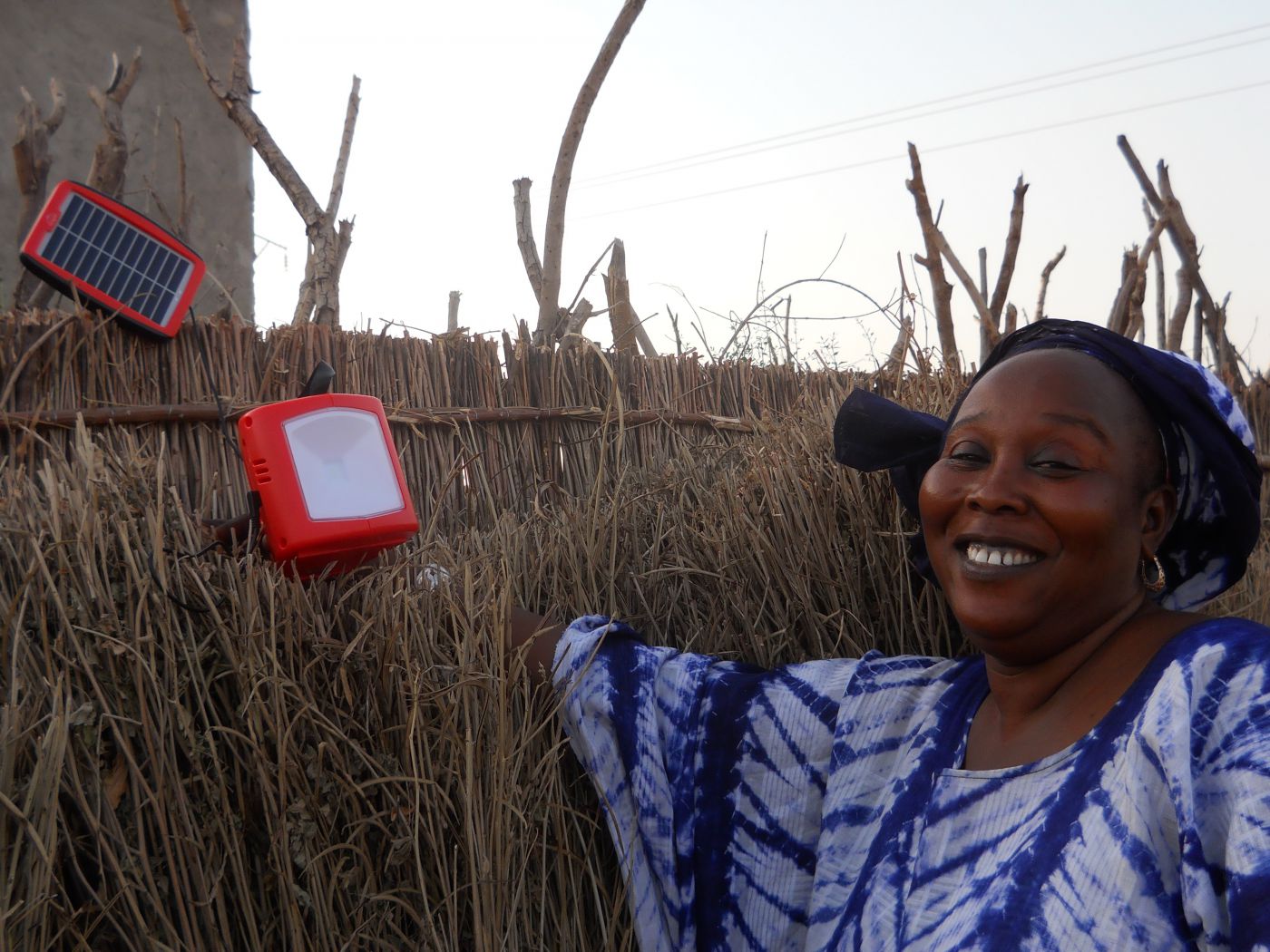
Oumy Ngom is the leader of a Senegalese women’s group who has has been trying to improve the wellbeing of her community for over a decade. When nominating Oumy for ENERGIA’s Women Entrepreneurship Award, Energy 4 Impact wrote that other women in the group she’s leading describe her as “dynamic, endearing, hardworking and open-minded”.
Concerned about the level of education within her community, Oumy took on the task of developing income-generating activities as well as ensuring that women had adequate literacy levels. Among other things, this meant setting up study groups and opening up a local agricultural production and sales unit.
After having benefitted from the Energy 4 Impact Women’s Economic Empowerment programme sponsored by ENERGIA, Oumy engaged her group in the use and sale of solar lamps and improved cookstoves. Among other things, Oumy is excited about the savings that these products mean for the local households: “Where they used to spend 500 or 600 Francs on charcoal for cooking, they now spend only 200 to 250 Francs because these new stoves consume so much less than traditional ones.”
During the past year and a half the women’s group led by Oumy recorded the highest sales of clean energy products among Energy 4 Impact’s entrepreneurs, and Oumy has become a true role model for other women in the group. She said: “What I enjoy most in my work is introducing new products to people. And as an accomplished entrepreneur, I can now share my knowledge with others, by teaching them how to make improved cookstoves or fix solar products, for example.”
Oumy would now like to build a fully solar-powered processing unit to further develop the group’s agricultural activities.
We thank our partners for the nominations and for their great work that facilitated these entrepreneurs’ success.


